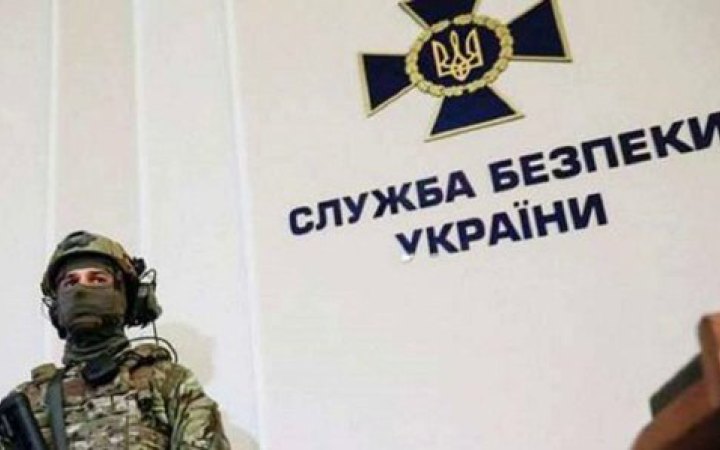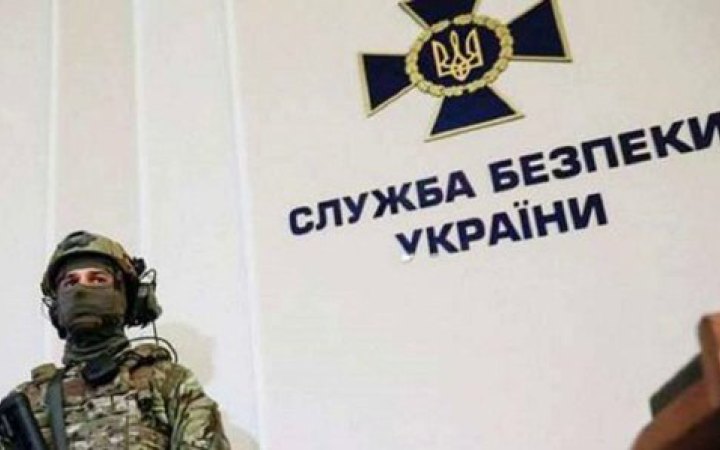
The main directorate of the Security Service of Ukraine in Kyiv Region has asked representatives of local governments to carry out public explanatory work to prevent the leaders of territorial communities or representatives of local authorities from attending meetings of religious communities where they discuss plans to move from the Ukrainian Orthodox Church to the Orthodox Church of Ukraine.
This, according to the SBU, creates preconditions for destabilising the socio-political situation in Kyiv and the region, according to a 7 September letter from the head of the SBU's main directorate in Kyiv and Kyiv Region, Yuriy Palahnyuk, to Kyiv's Darnytsya district state administration, which was made available to LB.ua.
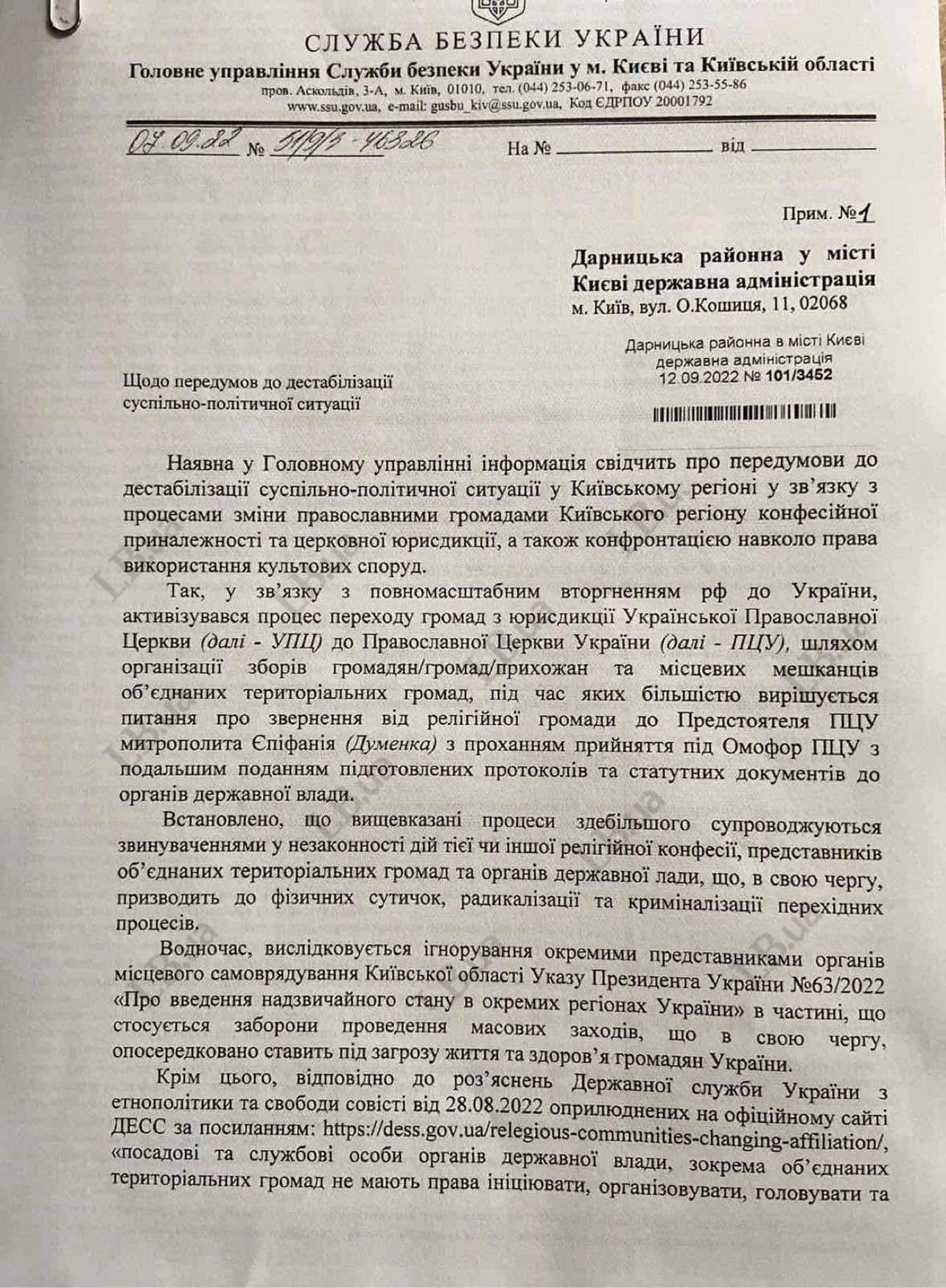
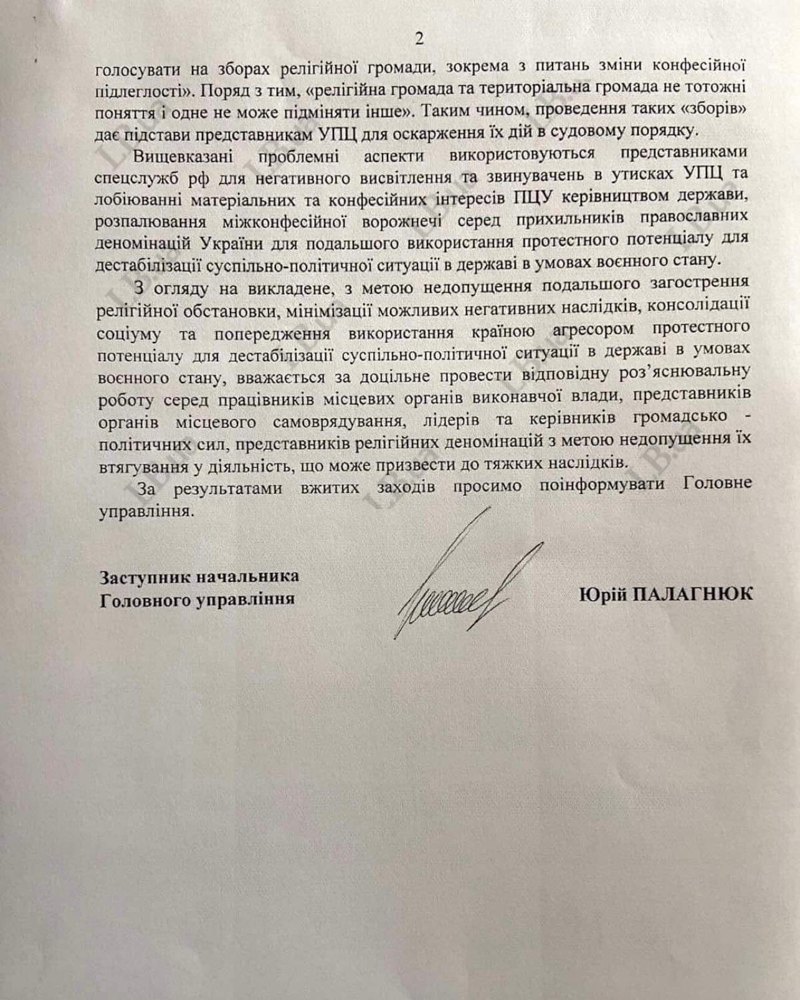
"In connection with the full-scale invasion of Ukraine by the Russian Federation, the process of transition of communities from the jurisdiction of the Ukrainian Orthodox Church to the Orthodox Church of Ukraine has intensified, with meetings of communities/citizens/parishioners and local residents of merged territorial communities being organised, during which the majority resolves that a religious community should ask to Metropolitan Epifaniy (Dumenko), the Primate of Orthodox Church of Ukraine, to take it under the Orthodox Church of Ukraine omophorion with subsequent submission of prepared records and statutes to the public authorities.
It was established that the aforementioned processes are for the most part accompanied by accusations of the illegality of actions of a particular religious denomination, representatives of merged territorial communities and state authorities, which in turn leads to physical clashes, radicalization and criminalization of transition processes," the SBU said in a statement.
It recalled the ban on mass events during the effective period of the Law of Ukraine "On introducing the state of emergency in some regions of Ukraine" and that officials and officers of state authorities and territorial communities, according to the clarification of the State Service for Ethnic Policy and Freedom of Conscience from 28 August 2022, have no right to initiate, organize, preside and vote at a meeting of a religious community, in particular on issues of changing the confessional subordination.
According to the SBU, "holding such a meeting can be used by representatives of the UOC to appeal these actions in court" and by the special services of the Russian Federation "to accuse the UOC of harassment, fuel inter-confessional discord and use the protest potential to destabilize the socio-political situation in the state".
The SBU also orders the local authorities to carry out "explanatory" work among the responsible commissioners with a view to "further avoiding" such situation and to report back accordingly.
Furthermore, as Lb.ua learned, in early September, the deputy head of the SBU directorate in Kyiv Region asked the culture department of the Kyiv regional state administration to provide copies of records and statutory documents of the religious community Parish of the Protection of Holy Virgin of the UOC Boryspil diocese in the village of Trebukhiv, Brovary District, Kyiv Region, which declared its intent to move under the Orthodox Church of Ukraine jurisdiction.
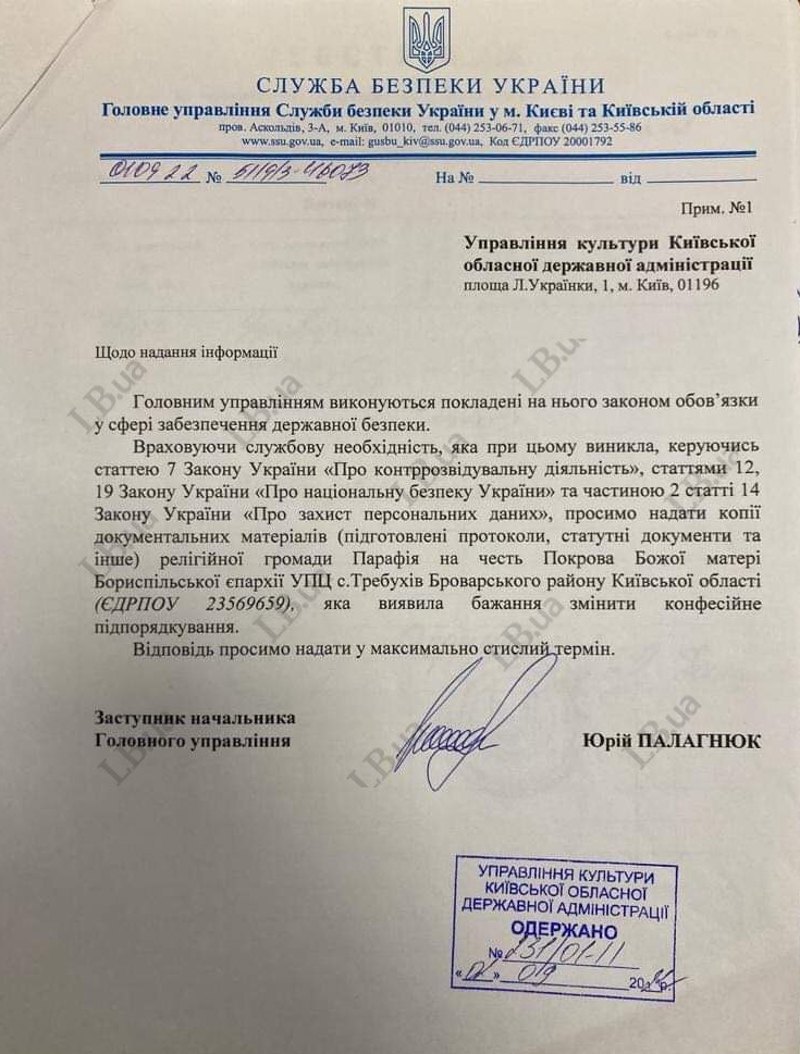
The SBU denies interference in religious processes in the state, saying it is being guided by reasons of national security only.
Russia has not abandoned its attempts to undermine the socio-political situation in Ukraine and, in particular, uses the religious factor to do so. Therefore the letter which was sent by the Kyiv directorate of the Security Service of Ukraine to the capital's district administrations has identified a number of aspects which representatives of enemy special services use for information and subversive activities against Ukraine," the SBU said in a comment to LB.ua.
Its spokesman Artem Dekhtyarenko said the SBU just drew attention to counteracting such hostile manifestations.
"Separately, it should be recalled that during martial law, any mass gatherings of people are forbidden because they may pose a threat to their lives due to the increased risk of missile attacks and sabotage that the Russian Federation may carry out. In order to prevent such crisis situations, as well as affecting sentiments in Ukrainian society, which could have negative consequences in times of war, the SBU monitors potential threats and informs the authorised agencies," he added.
Under the constitution, Ukraine is a secular state.
On 27 May, the UOC decided at its congress that it is "fully independent" from the Russian Orthodox Church. The "determination" of the UOC-MP to break with the ROC was based on an attempt to get out of the scope of the law on the activities of organisations whose governing centre is on the territory of the aggressor state. But the canonical law has no such status as "independent church". Therefore, the UOC continues to be part of the Russian Orthodox Church.








